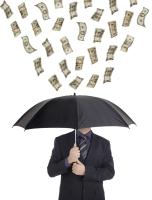
|
|
Financing With Invoice Factoring

Invoice factoring seems like a complicated idea to some people, so here is the breakdown. It is really simpler than you might think. Many companies do it to generate constant cash flow, but ultimately those companies lose money.
|
|
What Is An Invoice?
An invoice is a bill, of sorts. When companies do business together, one may leave the other a receipt, or invoice. It is a formal document that counts as a debt by the US government, so it is not something to be disregarded. Your accounting department will pay back invoices over time. When you have been given an invoice it is referred to as a purchase invoice that you need to pay back. It seems like a loan, but it is not. The goods or services have changed hands and the money is basically in process.
Big companies that have large expenditures use invoices. When the bill is too big to just put on a credit card, it is sent as an invoice to be taken care of later. Invoices are also used when goods are used over time. For example, a catering company may bring food into your office every week, but wait until the end of the month to bill you. This is simpler for both parties. They send you an invoice of the aggregate cost and instead of paying it weekly or daily, you pay all at once.
Not all invoices are IOUs, though. Some simply show and record the transaction that has taken place. A shipping company may leave an invoice stating what should be in your package so that you make sure you get all of the parts.
Crooked companies have been known to make false invoices to generate more income. This is highly illegal, but it can work if other companies do not keep track of their books. When you receive an invoice, the accountants should check to make sure that it seems legitimate. They should update you any time an invoice seems out of the norm.
What Is Invoice Factoring?
Invoice factoring is basically selling the invoices that your company has written. It is selling debt, in a sense. So when you have many invoices that have not been paid by other companies, you can put them in someone else's hands. The company that buys your invoices is called the factor.
This third party becomes the debt collector. They pay you a cash advance and take the debt to get the money from the borrowers. Keep in mind that no one is really borrowing or loaning, but these terms help you to understand the scenario. Companies are just buying over a period of time.
How Much Does It Cost And Is It Worth It?
Typically, the company that sells their invoices is charged a few percent of the total money. So they lose money, but are able to get it faster to put it back into the company as reoccurring capital investment. The price depends on how long it takes the companies holding the invoices to pay back their "loans" and how big the invoices are.
It all has to do with risk and payoffs. When you practice invoice factoring, you sell your risk. You receive the payoff of not having to worry about collecting the money anymore and the factor company makes money off of your sticky situation. The other companies have to pay back the invoices or they get sued. It is just a matter of when they will pay. Factor companies can afford to hold the risk because this is all they do. They don't have capital to keep up. Invoice factoring is a great way to generate quick cash flow for the company and to keep money moving in the economy.
Privacy Policy, Terms of Use